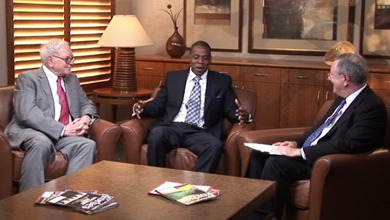
Digital Music News published an article this week detailing the top 8 reasons why rappers are great businessmen. We think they hit the nail on the head…almost. It’s not just rappers; it’s Urban artists across the spectrum. Between their collaborative zeal (read: brand alliance) and their unrivaled ability to prolifically produce records (consistently engage the consumer), Urban artists are showing no signs of relinquishing their roles as the leaders of the new music movement. Nor are they content to rest on their laurels.
Many of today’s Urban artists are taking their business prowess beyond the music industry. Where Rock artists have traditionally shied away from corporate partnerships for fear of being labeled “sell outs,” Urban artists have cashed in. Artists like John Legend, Jay Z, and Beyonce have parlayed commercial opportunity into positions as inter-media celebrities, expanding both their influence and their commercial viability. As HOVA himself once said, “I’m not a businessman. I’m a business, man.” He recently held court with business gurus Warren Buffett and Steve Forbes. Needless-to-say, Jiggaman and his contemporaries now have the undivided attention of corporate America. Indeed, some of the world’s biggest brands are clamoring to align themselves with Urban superstars – Nike’s newest “Boom” campaign features rapper Rick Ross and while crooner Legend has teamed up with Lexus and Target, pop diva Beyonce and her music have appeared in commercials for American Express, L’Oreal, and Comcast.
It is important to acknowledge however, that the initial force that broke down the floodgates to business opportunity for these artists was their early music. In fact, the authenticity of Urban music is the very thing that makes it work in a commercial setting, and perhaps why Urban artists have been able to cross into the business world with more indemnity than rock bands. Urban is a cultural movement – one that is centered on hustle and where commercial success is not dutifully shrugged off, but wholeheartedly pursued. Right now across America, up-and-coming Urban artists are creating new music that possesses both this authentic identity and commercial viability; the next chart-topper as well as the next wireless service provider commercial.
With the reach of Urban music expanding exponentially, one can be certain that the genre will continue to produce pop culture icons. And with that will come opportunity – for the artists, to turn music stardom into broader business success; and for companies smart enough to align themselves with such artists, to reach millions of potential consumers.
